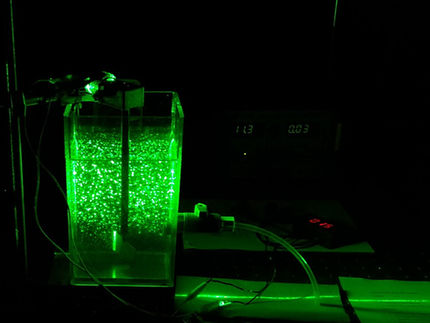Recycling astronaut urine for energy and drinking water
Advertisement
On the less glamorous side of space exploration, there's the more practical problem of waste — in particular, what to do with astronaut pee. But rather than ejecting it into space, scientists are developing a new technique that can turn this waste burden into a boon by converting it into fuel and much-needed drinking water. Their report, which could also inspire new ways to treat municipal wastewater, appears in the journal ACS Sustainable Chemistry & Engineering.
Eduardo Nicolau, Carlos R. Cabrera and colleagues point out that human waste on long-term journeys into space makes up about half of the mission's total waste. Recycling it is critical to keeping a clean environment for astronauts. And when onboard water supplies run low, treated urine can become a source of essential drinking water, which would otherwise have to be delivered from Earth at a tremendous cost. Previous research has shown that a wastewater treatment process called forward osmosis in combination with a fuel cell can generate power. Nicolau's team decided to build on these initial findings to meet the challenges of dealing with urine in space.
They collected urine and shower wastewater and processed it using forward osmosis, a way to filter contaminants from urea, a major component of urine, and water. Their new Urea Bioreactor Electrochemical system (UBE) efficiently converted the urea into ammonia in its bioreactor, and then turned the ammonia into energy with its fuel cell.
The system was designed with space missions in mind, but "the results showed that the UBE system could be used in any wastewater treatment systems containing urea and/or ammonia," the researchers conclude.
Organizations
Other news from the department science

Get the chemical industry in your inbox
By submitting this form you agree that LUMITOS AG will send you the newsletter(s) selected above by email. Your data will not be passed on to third parties. Your data will be stored and processed in accordance with our data protection regulations. LUMITOS may contact you by email for the purpose of advertising or market and opinion surveys. You can revoke your consent at any time without giving reasons to LUMITOS AG, Ernst-Augustin-Str. 2, 12489 Berlin, Germany or by e-mail at revoke@lumitos.com with effect for the future. In addition, each email contains a link to unsubscribe from the corresponding newsletter.




























































